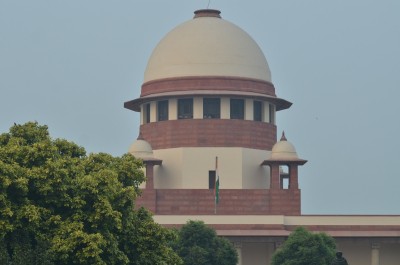
New Delhi, The Supreme Court on Thursday held that a name "is an intrinsic element of identity", and an individual's control over such cardinal element of identity cannot be denied to him/her by the CBSE, citing its examination byelaws.
In a 132-page judgment, a three-judge bench, headed by Justice A.M. Khanwilkar said: "The identity of an individual is one of the most closely guarded areas of the constitutional scheme in India."
The top court said the expression of identity is a protected element of freedom of expression under the Constitution. The top court judgment came on a batch of 22 petitions challenging the validity of the CBSE's byelaws, which put restrictions in corrections of names of students.
Countering one of the petitions, the CBSE had argued that the name of the parents was consistent with the school records and denied name change to the petitioner post publication of the results. To this, the court said: "The CBSE cannot impose precondition of applying for correction consistent with the school records only before publication of results. Such a condition, as we have held, would be unreasonable and excessive."
The top court directed the CBSE to amend its byelaws and held that the provision regarding change of name "post publication of examination results" is excessively restrictive and imposes unreasonable restrictions.
The bench, also comprising Justices B. R. Gavai and Krishna Murari, emphasised that an individual must be in complete control of his/her name and the law must enable the individual to retain as well as to exercise such control freely "for all times".
Clarifying on the aspect of identity, the bench said identity is an amalgam of various internal and external including acquired characteristics of an individual and name can be regarded as one of the foremost indicators of identity. "In other words, expression of identity is a protected element of freedom of expression under the Constitution," it noted.
"A Board dealing with maintenance of educational standards cannot arrogate to itself the power to impact identity of students who enrol with it. The right to control one's identity must remain with the individual."
The top court said that the CBSE, using its administrative efficiency to make it practically impossible for a student to alter his/her identity in the Board certificates, no matter how urgent and important it is, would be highly disproportionate and can in no manner, be termed as a reasonable restriction.
"The Board cannot put fetters on its duties so as to cause grave prejudice to the students with legitimate causes for changing their certificates. The exercise of discretion in this negative manner would be arbitrary and unreasonable, at best," it said.
However, the top court noted that there is merit in the CBSE's argument that frequent changes cannot be permitted as there is scope of abuse and misuse, apart from administrative burden. But to say that post the publication of examination results and issuance of certificates, there can be no way to alter the record would be a case of total prohibition, it added.
"To use administrative efficiency to make it practically impossible for a student to alter her identity in the Board certificates, no matter how urgent and important it is, would be highly disproportionate and can in no manner be termed a a reasonable restriction," noted the top court.
The bench added that reasonableness would demand a proper balance between a student's right to be identified in the official (public) records in manner of her choice, and the Board's argument of administrative efficiency.


.jpeg)

